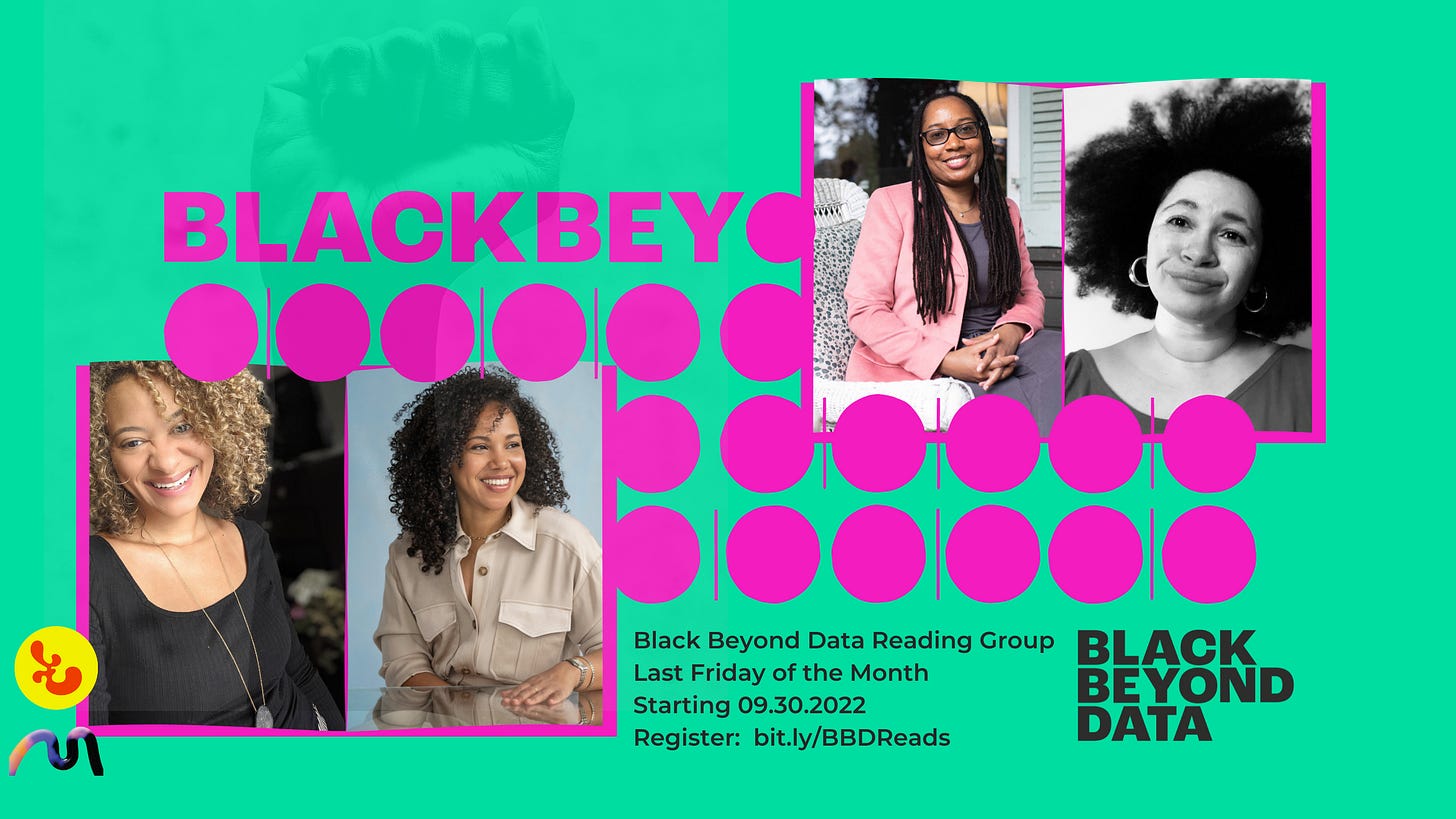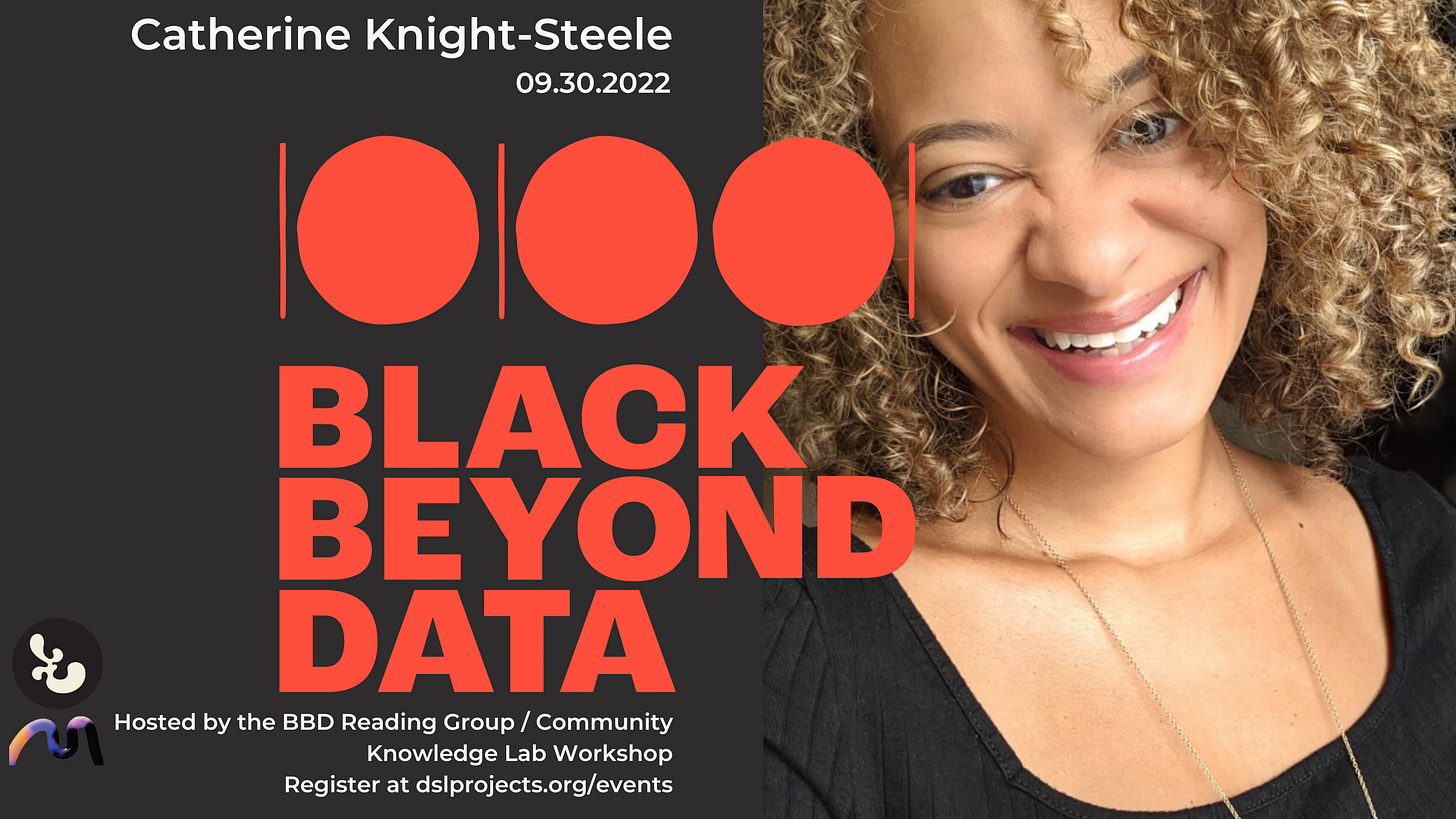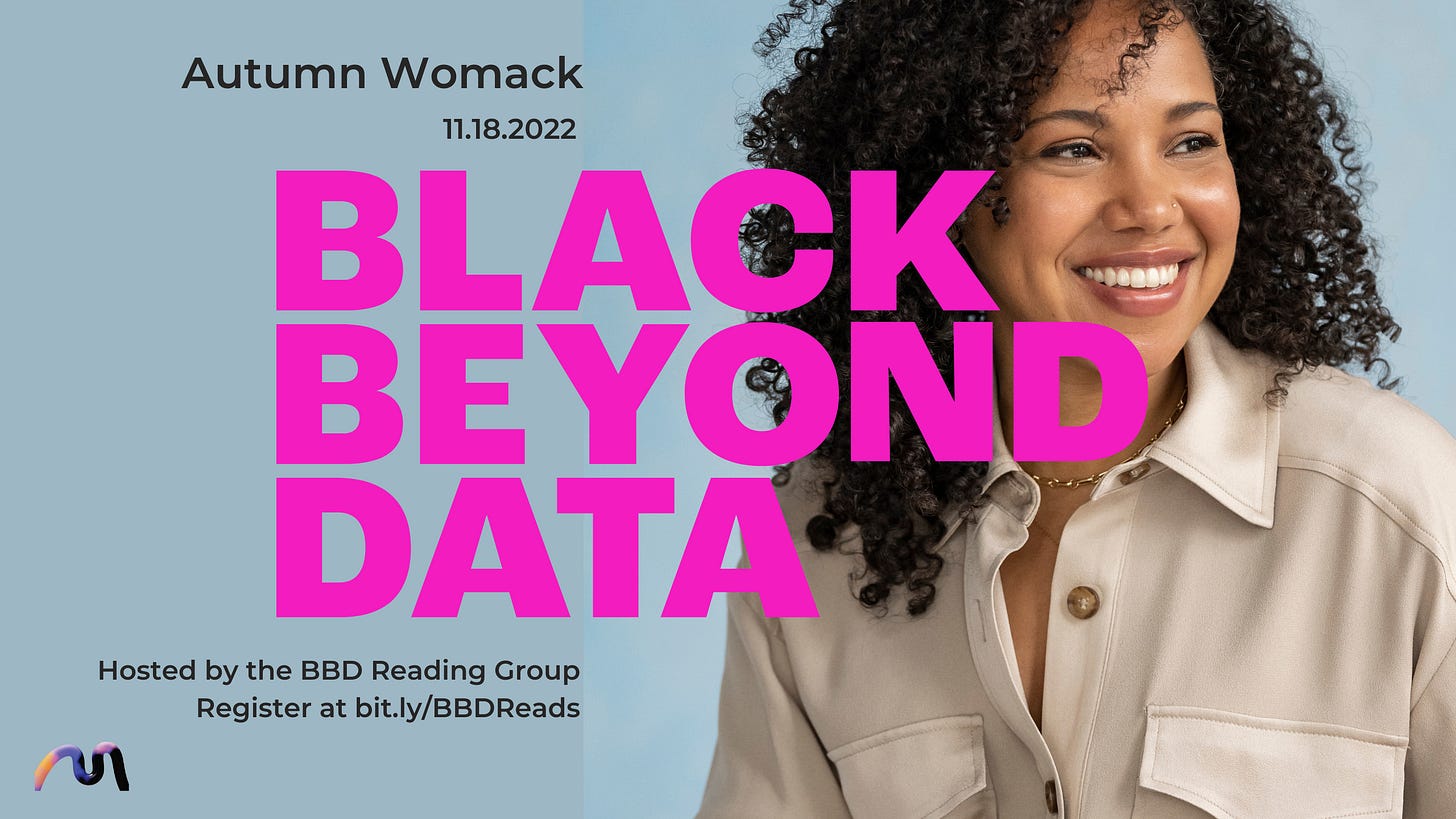Introducing the Fall 2022 Black Beyond Data Reading Group Speakers!!!!
Come build with us! #BlackBeyondData
The Black Beyond Data Reading Group is Back!!!
Last Friday of the Month (excepting holidays)
Register here: bit.ly/BBDReads
Meet the Fall 2022 Speakers!!
Catherine Knight Steele is an Associate Professor of Communication at the University of Maryland - College Park where she directs the Black Communication and Technology lab (BCaT) as a part of the Digital Inquiry, Speculation, Collaboration, & Optimism (DISCO) Network funded by the Andrew W. Mellon Foundation. Her research focuses on race, gender, and media, with a specific emphasis on Black culture and discourse and digital communication. She examines representations of marginalized communities in the media and how groups resist oppression and practice joy using online technology to create spaces of community. Catherine Knight Steele is the author numerous articles and the recently award-winning Digital Black Feminism (New York: NYU Press, 2021) available for purchase here. This gathering is co-sponsored with the Diaspora Solidarities Lab (DSL).
Autumn Womack is Assistant Professor of African American Studies and English at Princeton University where she specializes in late nineteenth- and early twentieth-century African American literary culture. Her first book, The Matter of Black Living: The Aesthetic Experiment of Racial Data, 1880-1930 (The University of Chicago Press) explores the dynamic interplay between Black aesthetic production and the late nineteenth-century’s emergent data regimes. Her research and writing has also appeared in edited volumes and journals, including American Literary History, J19, Women and Performance, Black Camera, The Paris Review of Books, and the Los Angeles Review of Books. She is the curator for the 2023 archival exhibition, Toni Morrison: Sites of Memory.
Dr. Brandeis Marshall teaches, speaks and writes about the impact of data practices on technology and society. Her work contributes to the data engineering, data science, and data/computer science education fields. Through her DataedX Group organization, she guides current tech workers in building data equity skills. Her first book, Data Conscience: Algorithmic Siege on our Humanity, is expected to be released later in 2022. It unearths the interlocking computational and civic implications of data on digital processes, structures and institutions. Dr. Marshall holds a Ph.D. and Master of Science in Computer Science from Rensselaer Polytechnic Institute and a Bachelor of Science in Computer Science from the University of Rochester. Currently, she is a Stanford PACS Practitioner Fellow and Partner Research Fellow at Siegel Family Endowment. Dr. Marshall is on sabbatical leave from Spelman College, where she is a Full Professor of Computer Science.
Dorothy Berry is a curator and archivist who has shaped her career around enhancing digital discovery of African American cultural heritage materials. She is the inaugural Digital Curator at the National Museum of African American History and Culture, Smithsonian. She is a graduate of Indiana University as a Masters Degree holder in both Folklore & Ethnomusicology as well as Library Science. During her time at Indiana she gained hands-on experience working with special collections at the Archives of African American Music and Culture, and the Black Film/Center Archive, which prepared her for the experience of leading a mass digitization project at University of Minnesota in service of Umbra Search African American History. For the past four years she has been Digital Collections Program Manager at Harvard University’s Houghton Library, where she, most recently, developed Slavery, Abolition, Emancipation, and Freedom: Primary Sources from Houghton Library, a digital project offering interpretative essays, computational research access, and classroom guides about a newly digitized collection of over 1000 rare books, manuscripts, and archival collections. She is also a published author with popular history pieces in JSTOR Daily, Lapham’s Quarterly, and The Public Domain Review. This gathering is co-sponsored with the Diaspora Solidarities Lab (DSL).
About the Black Beyond Data Reading Group
The aim of the Black Beyond Data Reading Group is to gather people (researchers, faculty, community activists) who have an interest in Black community-based data analytics to critically research and study social issues to initiate transformative change in Black communities. What are data? Data are facts, statistics, and other basic units of information about a people, place, or community. They are the building blocks elected officials, policy-makers, organizers, and educators use to draw conclusions about how a community functions. Data are collected all the time, often without our conscious awareness of it and it could be anything from your birth date on a form to social media likes on Facebook. However, data can be so much more. That’s what we hope to explore in the readings. Last year’s speakers included André Brock, Kenton Rambsy, Stacie Williams, and Kimberly D. Deas.
For more about Black Beyond Data, stay subscribed to the LifexCode substack and visit here: https://www.lifexcode.org/labs/blackbeyonddata








